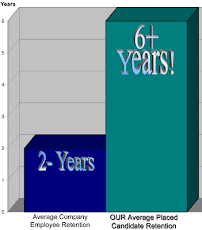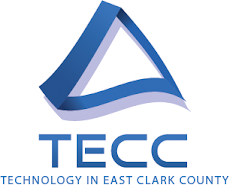Friday
Smart Grid Culture War? Power Guys vs. Netheads
We thought this was a good article to share:
The Smart Grid can be described as the fusion of digital communications with the electrical power system, unleashing real-time information flows to dramatically improve efficiency and reliability. This fusion of technologies also represents a mixture of technical cultures. The emerging caricature is of “netheads” (data network engineers), fresh from creating a ubiquitous Internet and conquering the telecom industry, arriving on the scene to “fix” a broken-down electrical system.
On the other side, the “power guys” (power system engineers), proud guardians of the 20thcentury’s greatest engineering achievement, look at their fun-but-intermittent browser experiences and wonder how anyone thinks this technology is remotely reliable enough. This is a potentially volatile mix – worlds where even the term “network” has different meanings – and industry decision makers need to be aware how this culture-clash might influence Smart Grid evolution.
Netheads make a compelling argument: The grid needs integrated, consistent, flexible, and, most of all, secure end-to-end connectivity. The decoupled layering of the Internet Protocol (IP) suite is the only alternative to today’s vertically-integrated, application-siloed grid systems. Resistance is futile!
But netheads must understand that the vast soup of protocols vaguely included in the “IP suite” was engineered for voice, video, and data applications with rather forgiving humans as the usual end clients. In contrast, many Smart Grid applications are machine-to-machine control systems – with sometimes very big machines, redefining for netheads the term “big iron.” An overloaded datacom network might result in a dropped phone call, a slow web page, or a garbled movie. An overloaded electrical power network can result in a big BOOM!
On the other hand, the power guys need to realize that the protocol layering implicit in IP is essential for long term adaptability, even if less efficient than a vertically optimized solution for a given function. Many traditional telecom engineers learned this the hard way – witness the ongoing liquidation of telecom behemoth Nortel Networks. But this does not mean that “IP-ness” is a one-size-fits-all magic pixie dust, as much of today’s hype might imply. A substation automation, distribution automation, or AMI network “based on IP” does not automatically deliver interoperability or “standards compliance.” IP is simply a tool that helps unlock the benefits of breaking down applications silos.
So the netheads and power guys have a lot of work to do – together – and the good news is that it is getting done. But it’s a good thing that engineers tend to be such an affable bunch!
Bob Gohn is a senior analyst with Pike Research, a market research and consulting firm that provides in-depth assessment of global clean technology markets.
The Smart Grid can be described as the fusion of digital communications with the electrical power system, unleashing real-time information flows to dramatically improve efficiency and reliability. This fusion of technologies also represents a mixture of technical cultures. The emerging caricature is of “netheads” (data network engineers), fresh from creating a ubiquitous Internet and conquering the telecom industry, arriving on the scene to “fix” a broken-down electrical system.
On the other side, the “power guys” (power system engineers), proud guardians of the 20thcentury’s greatest engineering achievement, look at their fun-but-intermittent browser experiences and wonder how anyone thinks this technology is remotely reliable enough. This is a potentially volatile mix – worlds where even the term “network” has different meanings – and industry decision makers need to be aware how this culture-clash might influence Smart Grid evolution.
Netheads make a compelling argument: The grid needs integrated, consistent, flexible, and, most of all, secure end-to-end connectivity. The decoupled layering of the Internet Protocol (IP) suite is the only alternative to today’s vertically-integrated, application-siloed grid systems. Resistance is futile!
But netheads must understand that the vast soup of protocols vaguely included in the “IP suite” was engineered for voice, video, and data applications with rather forgiving humans as the usual end clients. In contrast, many Smart Grid applications are machine-to-machine control systems – with sometimes very big machines, redefining for netheads the term “big iron.” An overloaded datacom network might result in a dropped phone call, a slow web page, or a garbled movie. An overloaded electrical power network can result in a big BOOM!
On the other hand, the power guys need to realize that the protocol layering implicit in IP is essential for long term adaptability, even if less efficient than a vertically optimized solution for a given function. Many traditional telecom engineers learned this the hard way – witness the ongoing liquidation of telecom behemoth Nortel Networks. But this does not mean that “IP-ness” is a one-size-fits-all magic pixie dust, as much of today’s hype might imply. A substation automation, distribution automation, or AMI network “based on IP” does not automatically deliver interoperability or “standards compliance.” IP is simply a tool that helps unlock the benefits of breaking down applications silos.
So the netheads and power guys have a lot of work to do – together – and the good news is that it is getting done. But it’s a good thing that engineers tend to be such an affable bunch!
Bob Gohn is a senior analyst with Pike Research, a market research and consulting firm that provides in-depth assessment of global clean technology markets.
Subscribe to:
Post Comments (Atom)














1 comment:
Post a Comment